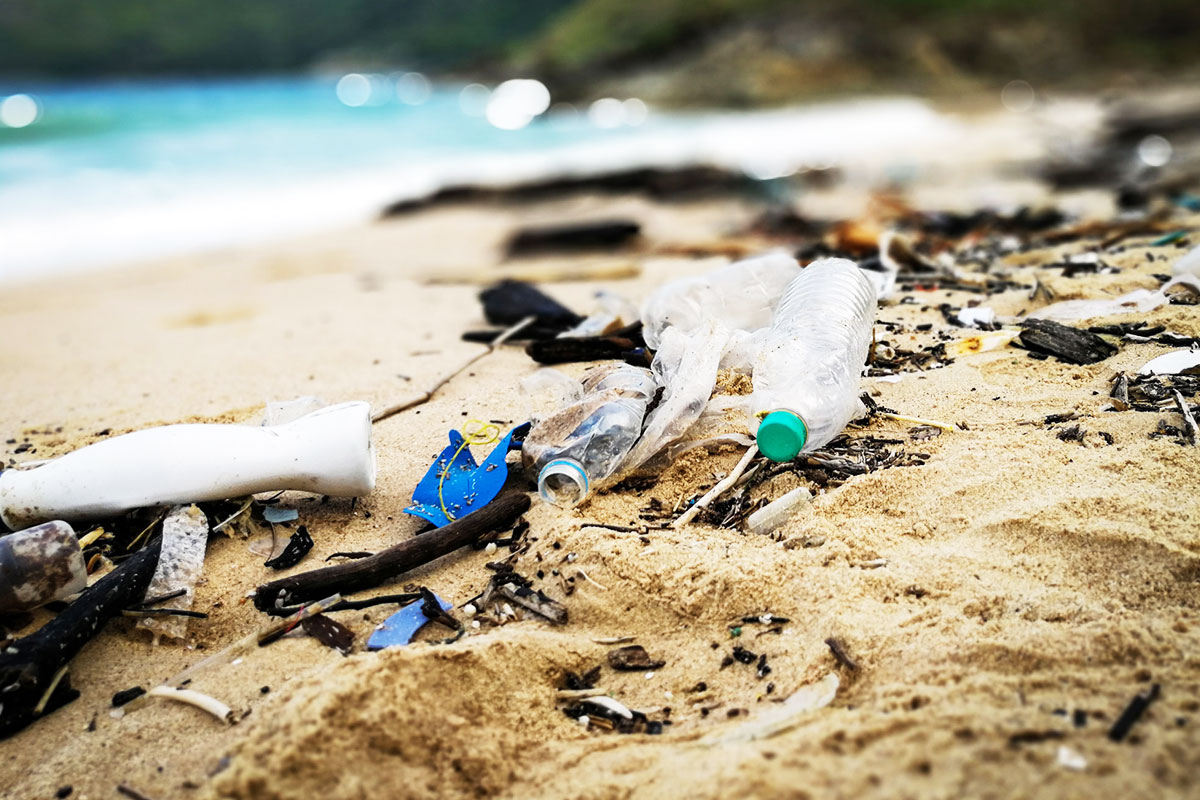There is no getting away from the fact the environment is in a plastics crisis.
National Geographic Society in partnership with Great Britain’s Royal Statistical Society reported last year that a massive 91% of plastics isn’t recycled. That means billions of tonnes of plastic has become waste. Waste that doesn’t degrade for hundreds of years filling our landfill sites, polluting our land, our water and our air.
The problem is that over the last 50 years plastics have become a successful and valuable resource. Plastics are strong, lightweight, efficient in transportation and increase food life. In a recent TED Talk called Plastic’s Rehab, Professor. Dr. Kim Ragaert challenges the war on plastic, comparing it with alternatives such as glass, paper and cotton. She shows that in terms of food shelf life, transportation, and carrier bags it takes more energy, trees, and land, to use the alternatives, which results in a much higher carbon footprint.
Different colours encourage us to buy more!
Another issue we have is that plastics manufacturers are making non-recyclable plastics because marketing analysis shows that consumers are attracted to different colours, so they buy more product. In particular, black and dark coloured plastics cannot be recycled so these will all end up either in landfill or littering our streets and oceans. In addition, not all plastics manufacturers are numbering their plastic to inform the user if the plastic can be recycled or not. It is not transparent, and this is a big problem. Furthermore, single use plastics such as water bottles, straws, wrappers, bags, cups, and packaging make up 50% of the annual plastics production.
So, we find ourselves in a paradoxical situation that we cannot escape because of the contradictions within the industry. The benefits of plastics as a resource against its inability to decompose, and the recycling limitations imposed on us through the plastics supply chain, big brands and our local waste management schemes.
Don’t choose convenience, choose to make a difference
What we need to do is challenge our own traditional methods of plastics waste disposal and not just simply throw our waste in the bin or skip. We have the power to make the markets sustainable, we just need to make the right choices. We also have the power not to buy.
Knowing what the right choices are involves educating ourselves about the journey waste has from it leaving you or your business and where it ends up.
We work with large construction companies to reduce, reuse and recycle waste which requires the company to think differently about its processes. Even on construction sites, it is all too easy and convenient to have mixed skips on site where all waste is thrown in together.
Our ProjectDIVERT mobile app initiative is having a huge impact by diverting of construction waste from landfill. By following a structured waste hierarchy, we can determine where to utilise waste materials most effectively. This can result in a large proportion of the waste, including plastic items, being recycled or reused by organisations in need.
Helping local communities
Through the testing phase alone, ProjectDIVERT has helped to divert 52 tonnes of construction waste from landfill, so it is already having a measurable impact on minimising landfill waste and decreasing carbon footprints. It also reduces the cost of disposal for construction companies, but it generates carbon savings from diverting from landfill and contributes to local communities, which greatly improves corporate social responsibility (CSR) outputs.
If communities, businesses and industry adopted the reduce, reuse, repurpose, recycle approach, it would help keep plastics within the circular economy and out of the environment in the first place.
Certainly, over the last two years we have seen a huge drive towards plastics waste awareness. On mass, communities are powerful and can influence big brands and Governments into making changes. We have seen that national retailers are making changes in store and importantly making firm commitments to move away from disposable packaging and single use plastic over the next decade (see BBC report). The UK Government is also feeling the pressure from activists to meet its obligation to cut the UK’s greenhouse gas emissions to zero by 2050.
Encore Environment is making every effort to reduce and minimise the impact of waste on the environment, and ensure its clients take the right action for sustainability.
Teaching the next generation about the importance of recycling
We are currently collaborating with schools across the UK to teach children about the importance of recycling and sustainability, and the impact it will have on their future. The educational program ‘Waste Wise Kids’ includes an on-site presentation, tasks and experiments, competitions and recycled handouts. It has been developed to focus on educating children about the waste hierarchy looking at different waste types, what happens to waste after it is disposed of and its impact on the environment. For more information click here.
For more information about ProjectDIVERT and our waste management services please contact us here.


